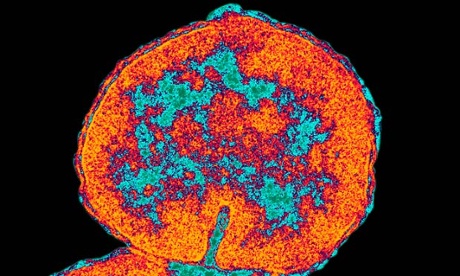Sexual health clinics on alert after patient treated in Cairns found to have the highest level of drug resistance reported in Australia

Neisseria gonorrhoeae, the bacterium that causes gonorrhoea. Photograph: Dr David M Phillips/Getty Images/Visuals Unlimited
Concerns are mounting over a powerful new form of gonorrhoea after a patient was found to have the highest level of drug resistance to the disease ever reported in Australia.
It is understood the patient, a tourist from central Europe, contracted the “sex superbug” in Sydney and was eventually treated in Cairns.
The discovery of the case in Australia, which resulted in a health alert in July, has also prompted warnings in New Zealand, where sexual health clinics are on high alert amid fears the new strain will spread there.
NZ Sexual Health Society president Edward Coughlan warned the patient involved, who is believed to have left the country, had the highest level of gonorrhoea drug resistance ever reported in Australia.
The warning comes amid concern in recent years about an untreatable strain, known as H041, which was first discovered in 2009 after a sex worker fell victim to the superbug in Japan.
There have also been reports of a medication-resilient strain of the sexually transmitted disease in Hawaii in May 2011, as well as in California and Norway.
Coughlan warned that most antibiotics developed in the past 70 years had been useless in treating the infection, and there were no new treatment options on the horizon.
“This is a major public health concern,” he said.
Gonorrhoea, colloquially known as the clap, is caused by Neisseria gonorrhoeae, a bacterium that can grow and multiply in the warm, moist areas of the reproductive tract, including the cervix, uterus and fallopian tubes in women and in the urethra in women and men.
Symptoms are often silent but the long-term effects can be devastating, causing painful pelvic disease in women and infertility in both sexes.
Comment has been sought from state and federal health authorities.
